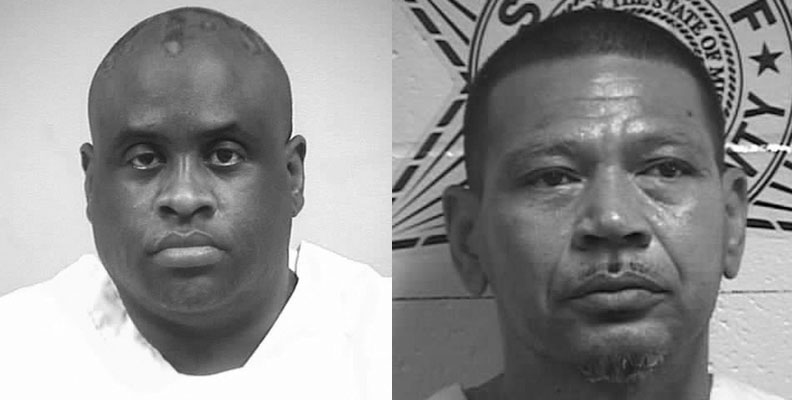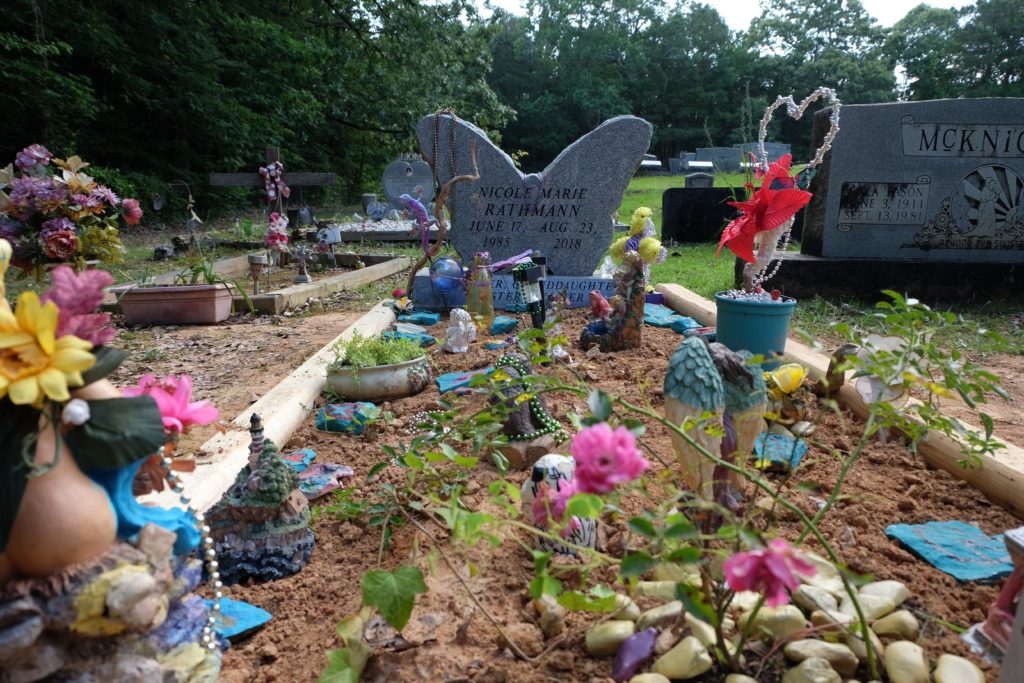A year after Willie Hollinghead died, his family received a death certificate in the mail:
They already knew what was printed on the form:
Name: Willie L Hollinghead
Date of Death: 08/03/2018
Age at last birthday: 36
Facility name: South Mississippi Correctional Institution
Still, one fact eluded them. Cause of death: Undetermined.
Employees at the Leakesville prison found Hollinghead, who was serving time for a sale of cocaine conviction, lying unconscious late in the night that August. An emergency medical technician pronounced him dead less than an hour later, according to an incident report.
His family is still making calls to the Mississippi Department of Corrections, trying to uncover what led to Willie Hollinghead’s last moments on the prison floor.
“We’ve talked to the chaplain over at the prison, we’ve talked to the warden over there, we’ve talked to (Greene County Coroner) Ladd Pulliam,” said Michele Nix Hollinghead, Willie’s sister-in-law. “I’ve talked to everybody, and there’s no answers nowhere.”

Willie Hollinghead was one of 16 people whose deaths in the Mississippi prison system during a single month last year drew intense public scrutiny. MDOC maintained that many of the deaths were the result of illness and “natural” causes, and that the number of deaths was “not out of line” with prior months. In the immediate aftermath in the spike of prison deaths, as questions from family and civil rights activists persisted, MDOC Commissioner Pelicia Hall released a statement announcing the state was calling on the Federal Bureau of Investigations to assist the Mississippi Department of Public Safety in investigating the deaths, “in the interest of transparency.”
One year on, no further public information or departmental explanation regarding the 16 prisoners’ cause of death has been released, nor are any forthcoming. Families and advocates continue to demand answers.
In response to a request to the FBI for an interview, public affairs specialist Brett Carr wrote in December via email: “As we stated in August of 2018, we received a request for assistance from Commissioner Hall. However, the state maintained the lead on the investigation and the FBI offered technical assistance. I recommend that you contact the state in regards to any findings regarding the investigation.”
Cliff Johnson, Director of the Roderick and Solange MacArthur Justice Center in Mississippi, which has litigated prison conditions before, said, “I think a big part of the story is that when people die in jail, we don’t know any more a year later than we did when those people died.”
Too often, he said, the government and the public’s shared attitude is dismissive. “Who really cares? Who even asks the questions?”
A log of in-custody deaths kept by the agency notes 14 of those August deaths as “natural.” The remaining two, Willie Hollinghead and a man named Nija Bonhomme, who died at Wilkinson County Correctional Facility three weeks later, are listed as homicides.
One year later, no charges have been filed against anyone for Willie Hollinghead’s death, according to Cecelia Bounds, Greene County Circuit Clerk.

Families and advocates, though, continue to demand answers. In lieu of anything definitive, Hollinghead’s family speaks in hypotheticals — what happened in those last minutes, what Willie must have said, who touched him, how he fell to the ground. After retrieving his body from a mortuary in Jackson, before they buried him his brothers Otties Brewer and Johnny Hollinghead said they noticed blue marks under his neck and a bruise on his forehead. Those marks form the basis of the scenario the Hollingheads have constructed and revisited over and over since August 2018.
“When they choked him, they throwed him down,” Nix Hollinghead hypothesized. The bruise, she figured, must have surfaced after Willie hit the floor.
“Procedurally, the MDOC refers homicide cases to the respective district attorney’s offices and leaves any discussions about defendants, charges or related matters to those prosecutors,“ MDOC spokesperson Grace Fisher wrote in an email responding to questions about the case.
For those familiar with the state’s prison system, the lack of transparency is nothing new.
“The problem with these kinds of deaths and the attempt to learn what MDOC knows about them is that if MDOC just defers and delays, that inquiry becomes ancient history and goes away,” Johnson said. “These aren’t prominent, powerful families that can keep these issues in front of people and get answers out of a government agency.”
Still, several family members of those who died in Mississippi prisons in the summer of 2018, have talked to lawyers, including Grenada attorney Carlos Moore, who is representing five families. Moore said he believes the deaths were caused by negligence and indifference on the part of the state.

One of Moore’s clients, Kent Rathmann, whose daughter Nicole died on Aug. 23, 2018 after she was taken from Central Mississippi Correctional Facility to a hospital, said he and the rest of Nicole’s family will pursue litigation “to expose what really happened so it doesn’t happen to somebody else again, so somebody else’s family doesn’t go through this.”
Nicole Rathmann, 33, died just days before her parole date. She had served six years for a sale of methamphetamine conviction from 2013, and was active in working toward her release, even writing a state lawmaker about her chances at parole and her history of addiction. Her cause of death, her father said, was a ruptured aneurysm caused by ingestion of methamphetamine.
Kent Rathmann cited rumors of neglect, including delayed or deficient medical care and widespread complaints of illicit drug dealing in the prison. He said further investigation into these issues might shed light on the death of his daughter. He added that seeking financial restitution is not a motivating factor in the family’s efforts to take on the state of Mississippi, rather that he and his family want to “rattle” the cage of a sprawling and seemingly indifferent prison system.

By the end of 2018, 77 people had died in MDOC custody in that year alone, mostly from “natural causes,” the agency reported. Between 2013 and 2017, an average of 65 people died each year in MDOC custody.
Rep. Bill Kinkade, R-Byhalia, chairman of the Corrections Committee, said he is not privy to any MDOC investigations into individual deaths, adding that his focus these days is on the 4,000 people who leave the prison system each year.
“Corrections takes a lot of criticism, and I get that,” Kinkade said. “I’m a big boy, I can take it. But we’re doing a lot of good things. Or trying.”

Following the August deaths, Kinkade claimed he ran a “cursory study” comparing the number and type of deaths at MDOC—its total prison population numbered 19,300 in August of 2018—to those in a county of a comparable population of 19,000, finding no “correlation of anything that seemed inappropriate.” No elements of this study were made available to the reporter.
As public attention has drifted to other issues in the system, Nicole’s and Willie’s families are left behind to make sense of their deaths.
To get to the Bluff Springs Baptist Church Cemetery, where Nicole and the rest of her family lies, her grandmother, Edna Medders, winds through a dusty, unpaved road that passes by stretches of farmland, including the house in which Medders grew up. Here, Medders has decorated Nicole’s grave with brightly painted rocks and planted a rosebush opposite the tombstone. She visits often, as does Nicole’s now-teenage son.
“Nicole’s death destroyed everybody,” Medders said.

For Willie’s siblings, the death of their youngest brother feels like a moment of personal failure, they said.
This summer, several of Willie’s relatives gathered to comb through the box of Willie’s belongings his sister-in-law Nix had picked up from the prison agency. No one had opened the box since Willie died, Nix Hollinghead said as she smoothed out folded sheets of paper, revealing graded worksheets from a correspondence course. Otties Brewer, Willie’s oldest brother, thumbed through a pocket Bible.
Nix Hollinghead picked up a bag of clothes — the prison whites Willie was wearing when he died — still sealed into a tight ball in a clear plastic bag.
Brewer didn’t understand why the corrections department released the garments; to him, the bag was evidence that should still be locked up at the state’s crime lab.
“We’ve never opened it,” Johnny Hollinghead said. “I don’t want to open it.”
Michelle Liu is a Report for America corps member covering criminal justice for Mississippi Today. She has been expanding written coverage of public policy issues, particularly health care, in the nation’s poorest state, especially in the Mississippi Delta and other poverty-affected areas.
 A version of this story appeared in Mississippi Today on December 4, 2019
A version of this story appeared in Mississippi Today on December 4, 2019Updated January 13, 2019


































